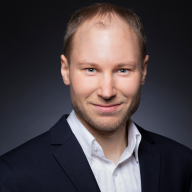
Falk Lieder
Bio
I joined the psychology department at UCLA as an Assistant Professor in July 2023. Prior to that, I was an independent research group leader at the MPI for Intelligent Systems in Tübingen. I completed my Ph.D. in the Computational Cognitive Science Lab at UC Berkeley in 2013, obtained a master’s degree in Neural Systems and Computation from ETH Zurich, and completed two simultaneous bachelor's degrees in Cognitive Science and Mathematics/Computer Science at the University of Osnabrück.
Posts 10
Comments32
Leverage Research, including partial takeover of CEAI am very shocked. What exactly happened? How could this happen? How could the CEA possibly let itself be infiltrated by a cult striving to take over the world? And how could an organization founded by academics fail to scrutinize Leverage's pseudo-scientific and manipulative use of concepts and techniques related to psychotherapy and rationality? Did CEA ever consult an independent psychological scientist or psychotherapy researcher to assess the ethicality of what Leverage was doing, the accuracy of their claims, or the quality of their "research"? Didn't it raise any red flags that the people inventing new methods of "psychotherapy" had no training in clinical psychology?
Thank you for your feedback, Stan!
I think the appropriateness of E[CE] as a prioritization criterion depends on the nature of the decision problem.
I think the expected value of the cost-effectiveness ratio is the appropriate prioritization criterion for the following scenario: i) a decision-maker is considering which organization should receive a given fixed amount of money (m), and ii) each organization (i) turns every dollar it receives into some uncertain amount of value (CE_i). In that case, the expected utility of giving the money to organization i is E[U_i]= m*E[CE_i]. Therefore, the way to maximize expected utility is to give the money to the organization with the highest expected cost-effectiveness. In this scenario, the consequences of contributing $1 to a project with an expected cost-effectiveness of 1 WELLBY/$ are almost identical in both scenarios. Most of the expected utility comes from the possibility that the project might be highly cost-effective. If the project is not highly cost-effective, then the $1 contribution accomplishes very little, regardless of whether the project costs $10,000, $100,000, or $1,000,000.
In my view, your example illustrates that the expected cost-effectiveness ratio is an inappropriate prioritization criterion if the funder has to decide whether to pay 100% of the project's costs without knowing how much that will be. In that scenario, I think the appropriate prioritization criterion would be E[B]-E[CE_alt]*E[C], where E[CE_alt] is the expected cost-effectiveness of the most promising project that the funder could fund instead.
I think the second decision problem describes the situation of a researcher or funder who is committed to seeing their project through until the end. By contrast, the first decision problem corresponds to a researcher/funder intending to allocate a fixed amount of time/money to one project or another (e.g., 3 years of personal time or 1 million dollars) and then move on to another project after that.
I think the best-known study on the subject is
Oliner, S. P. (1992). Altruistic personality: rescuers of Jews in Nazi Europe. Simon and Schuster.
Two other good articles on this subject are
- Fagin-Jones, S., & Midlarsky, E. (2007). Courageous altruism: Personal and situational correlates of rescue during the Holocaust. The Journal of Positive Psychology, 2(2), 136-147.
- Midlarsky, E., Fagin Jones, S., & Corley, R. P. (2005). Personality correlates of heroic rescue during the Holocaust. Journal of personality, 73(4), 907-934.
Rachel Baumsteiger continues to conduct research on the intervention for promoting prosocial behavior. The intervention is currently being deployed by the University of California as a mental health service for students with adverse childhood experiences and toxic stress. This will yield some additional data on its benefits and effectiveness. However, because this deployment is funded as a mental health service, it doesn't include a control group. Running a rigorous, large-scale RCT will require additional funding. In a later post, I will show that doing so would be highly cost-effective. I think if funding became available, Rachel Baumsteiger would be happy to run the RCT. And I know that I would be excited to collaborate on that project.
"Anti-Malaria Foundation" was a typo. I have corrected it to "Against Malaria Foundation".

Us feeling positive is unimportant compared to the future of humanity. Bigger things are at stake here.